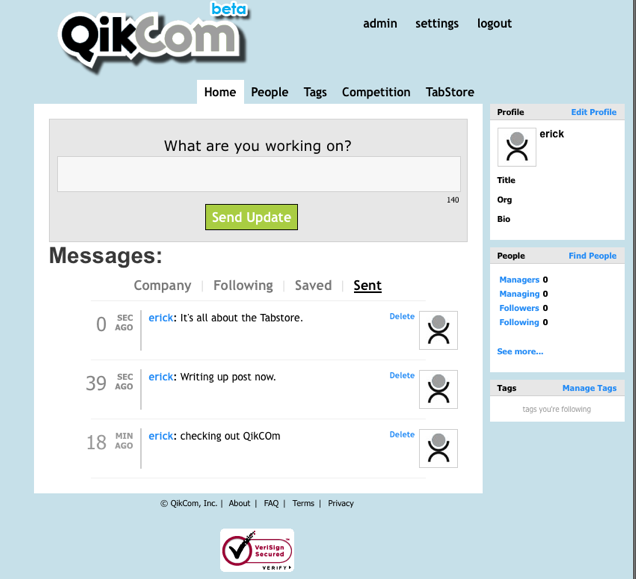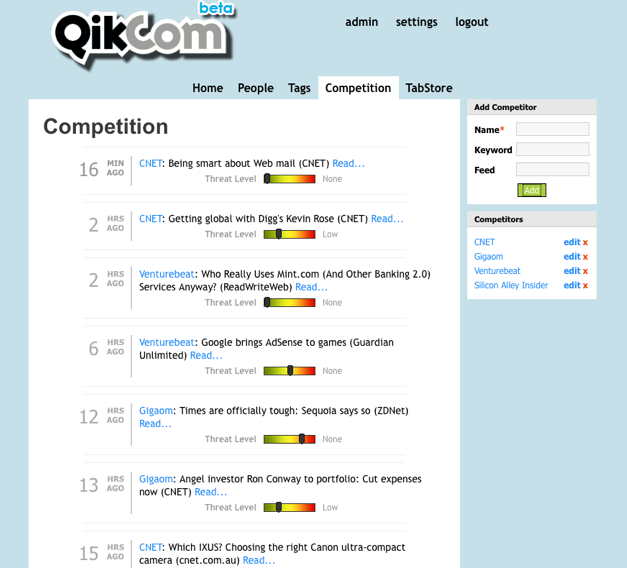
We now have a horse race for who will become the enterprise version of Twitter. Today marks the beta launch of QikCom, which is aimed at companies that want their employees to communicate with each other privately in a Twitter-like fashion. QikCom joins Yammer (winner of this year’s TechCrunch50), and Present.ly. We have exclusive invites for TechCrunch readers (sign up here with a company email address).
All three are micro-messaging services that ask: “What are you working on?” Employees update each other in 140-character bursts. (You can read our writeups of Yammer here, and Present.ly here). But QikCom out of Austin, Texas, has a few twists of its own. For instance, it lets you delete a message after you’ve sent it and you can set up an org chart.
But the biggest twist is QikCom’s TabStore. It is modeled on Apple’s App Store for the iPhone. QikCom will keep adding features as new tabs, and allow other developers to do the same. At launch there are three free tabs in the TabStore that anyone can add: a To-Do list manager, a place to keep frequent numbers used across a company, and, my favorite, a competition tab.
The competition tab lets you add the name of any competitor or product. QikCom then goes out to look for feeds from that competitor and populates that tab with the feed appropriate feed entries. Each entry has a rating slider that lets everyone on QikCom rate the threat level of each item. I tried it by typing in some blogs and news sites and it fetched the feeds instantly. It also finds mentions of competitors in news articles. Right now you can only rate each item, you can’t comment on them. And you can only see the competition feed in the competition tab. But commenting is coming soon, as is the option to make the competition feed show up on the home page. (It is in beta).
The TabStore is also how QikCom hopes to make money. Any employee can use the service for free. And, unlike Yammer, which charges companies to gain administrative control of their corporate Yammer networks, QikCom also gives admin control away for free. It plans to charge a monthly subscription fee for new tabs it will create in the future, and take a share of revenues from tabs made by other developers, which will also be available in the tab store.
Yammer doesn’t have a TabStore, but it does a better job on basic messaging features such as the ability to send an update by SMS. You cannot do that yet with QikCom. (It is working on a a way to email in your updates, though). Yammer is also further along in creating an API
that will allow it to get its messages out to other services. QikCom is working on its own API for Twitter-compatible services.
If you were working at Yammer, how would you rate QikCom’s threat level?


 QikCom
QikCom